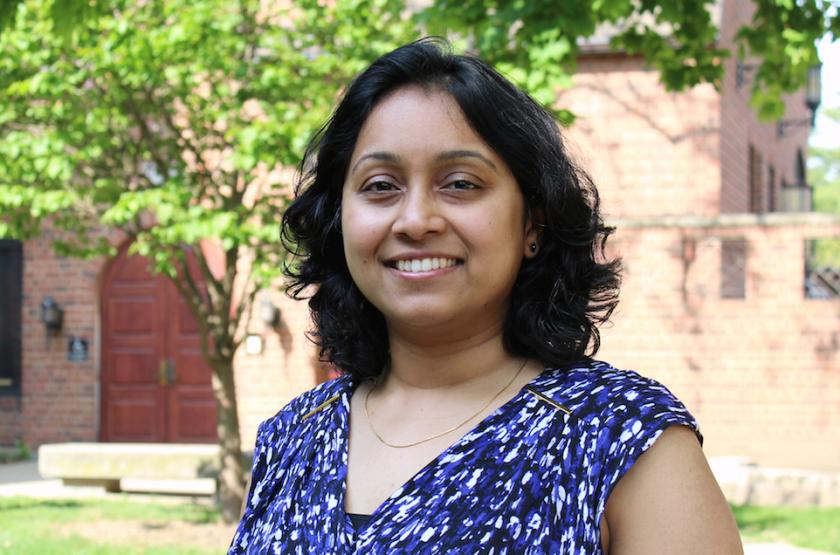
Master’s student Gretsi Isac chose to earn her degree at the iSchool at Illinois because she knew the School would present rewarding challenges and open doors for professional opportunities. Now she’s preparing to graduate in August and pursue a career in data analytics.
Why did you decide to pursue an LIS degree?
My interest in LIS stems from my previous employment at the Canadian bargaining association for health employers in British Columbia. I graduated with a bachelor's degree in food, nutrition, and health and got this job working as secretary/support staff to the research and knowledge management team. We handled growing amounts of data and information that needed to be organized, stored, and analyzed. Designing an efficient retrieval process for staff and external stakeholders also became critical. It was this experience that piqued my interest in information organization.
Why did you choose GSLIS?
After moving to Champaign from Canada, a friend in the LIS program shared his experience and told me about the courses he was taking. I was surprised that the program had a strong information science component and that it was ranked as one of the best schools in the United States. I anticipated that studying at Illinois would give me a rewarding personal challenge and open exciting professional opportunities.
What particular LIS topics interest you most?
At first, I was unsure which courses would be the best for me because there were many options, and they all sounded good! After meeting with staff of the Career Services office, I decided on the socio-technical data analytics (SODA) specialization, which turned out to be the right choice. The best part was the opportunity to learn different tools to effectively manage big data in any kind of setting.
One of the most rewarding experiences for me was learning to code in Java. Having no prior knowledge of programming languages, I was delighted to find that I could learn to code, and I enjoyed opportunities to apply this skill to real datasets. For me, the most intriguing part of data analysis is the discovery process—finding unforeseen patterns in the data and then supporting the discovery with statistically-sound evidence. I have also enjoyed learning about related aspects of conducting analysis, such as the legal issues of data use.
What do you do outside of class?
I have enrolled in classes at Parkland College to learn additional computer science concepts such as data structures, inheritance, polymorphism, and object-oriented design to understand better ways of storing large amounts of data as well as write reusable and maintainable code.
Outside of the academic pursuits, I am a mom to my three-year-old daughter, whose energy keeps me well occupied. My family enjoys hosting weekly dinners and gatherings for a Christian club on campus. In the summer, we like spending time at the playground, especially with other families, or joining our friends for a game of frisbee.
What career plans or goals do you have?
Currently, I am a research assistant to Associate Professor Catherine Blake. My work involves collecting citation data from Cochrane reviews regarding breast cancer, vaccinations, asthma, and other topics. I am responsible for extracting, cleaning, and uploading the data into an Oracle database for further analysis. When I graduate this August (yay!), my goal is to work as a data analyst. I have a particular interest in health-related data because of my undergraduate academic background.